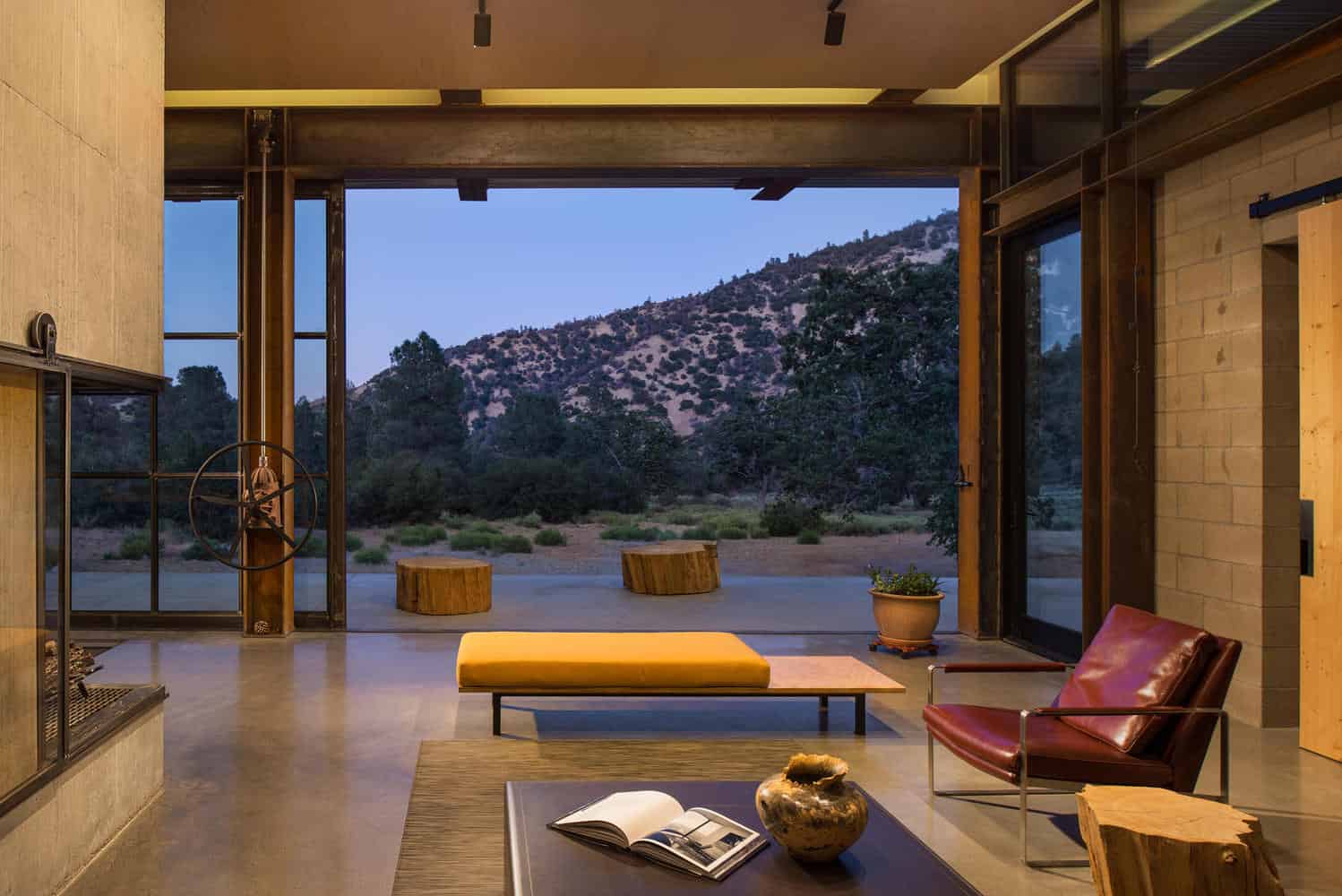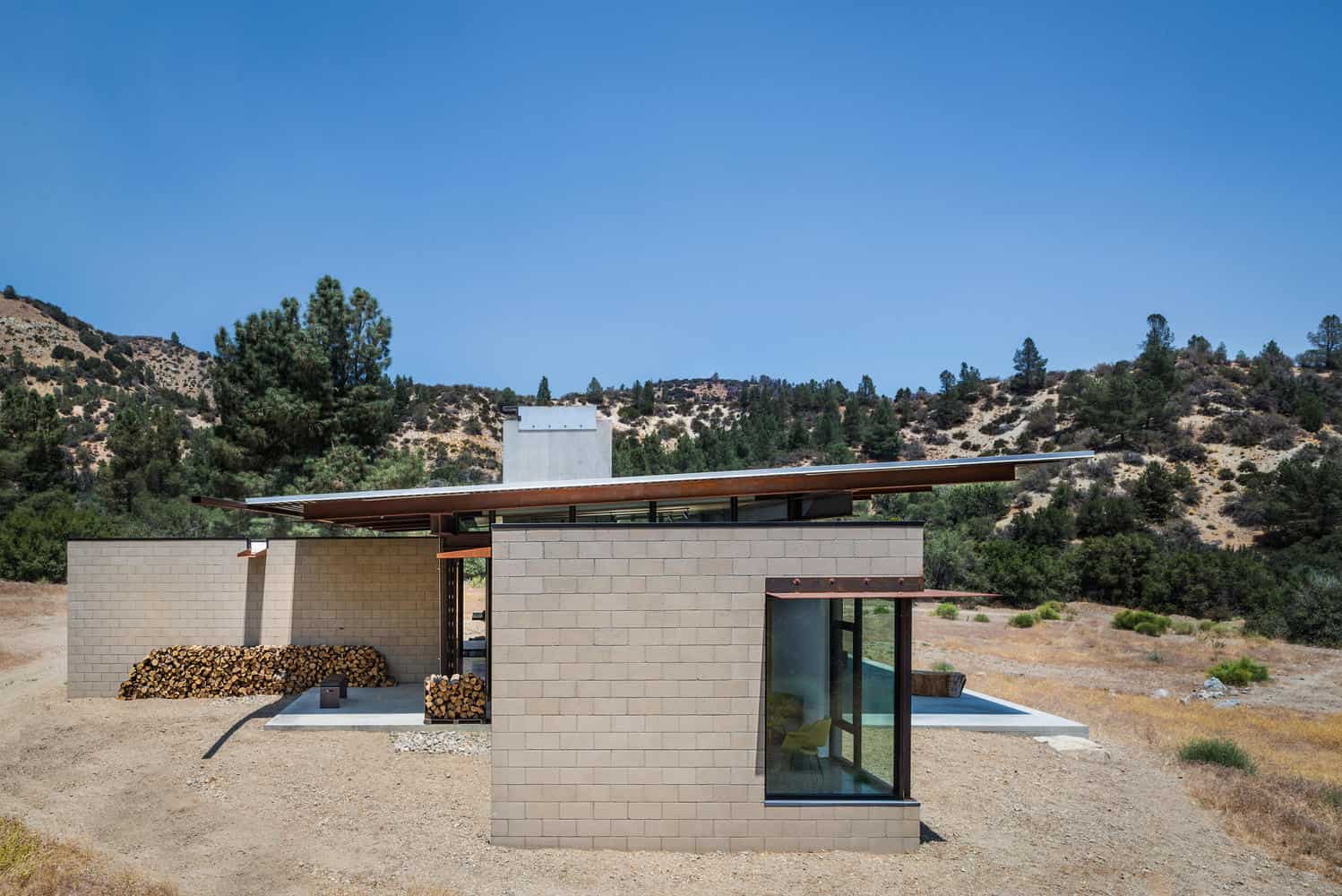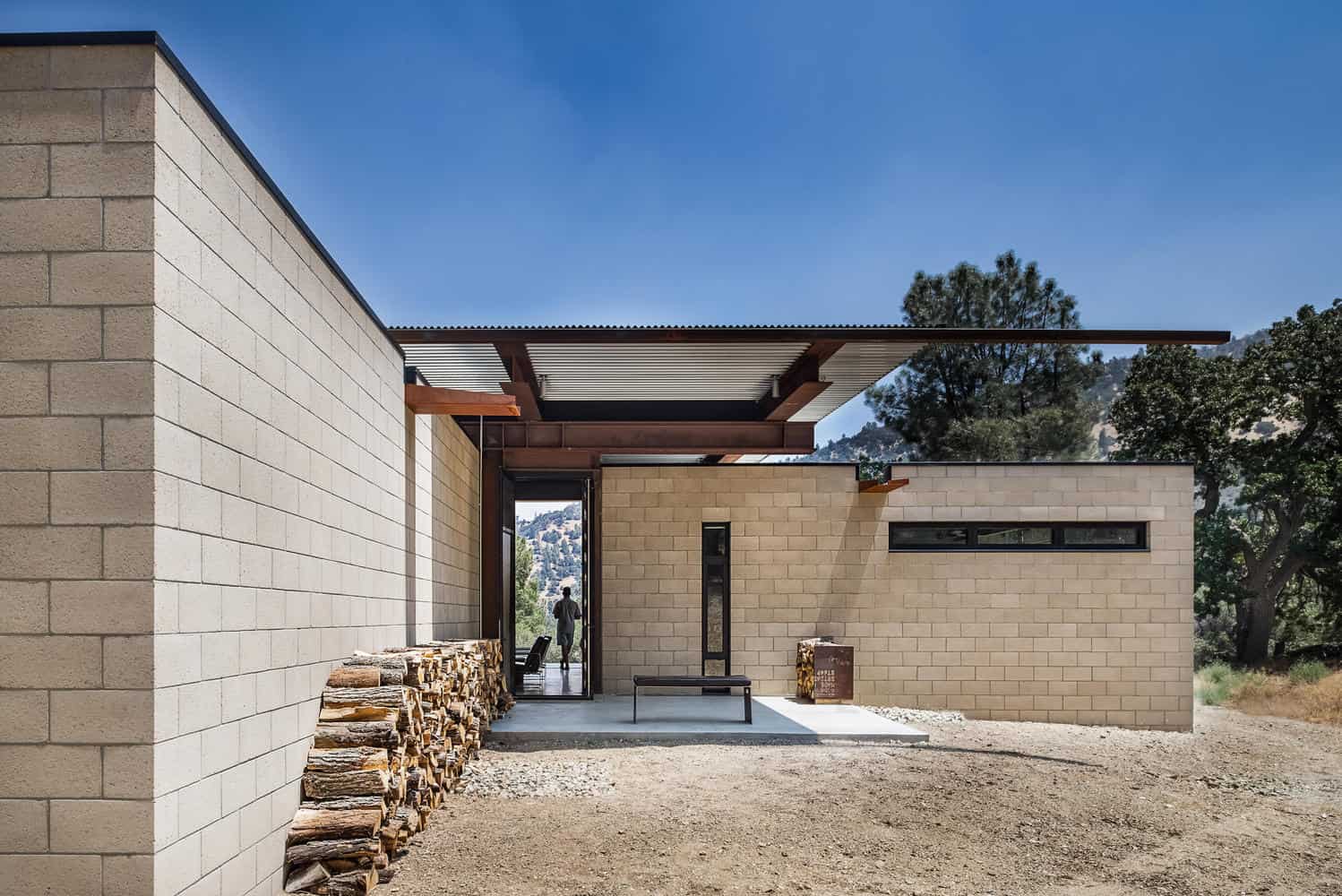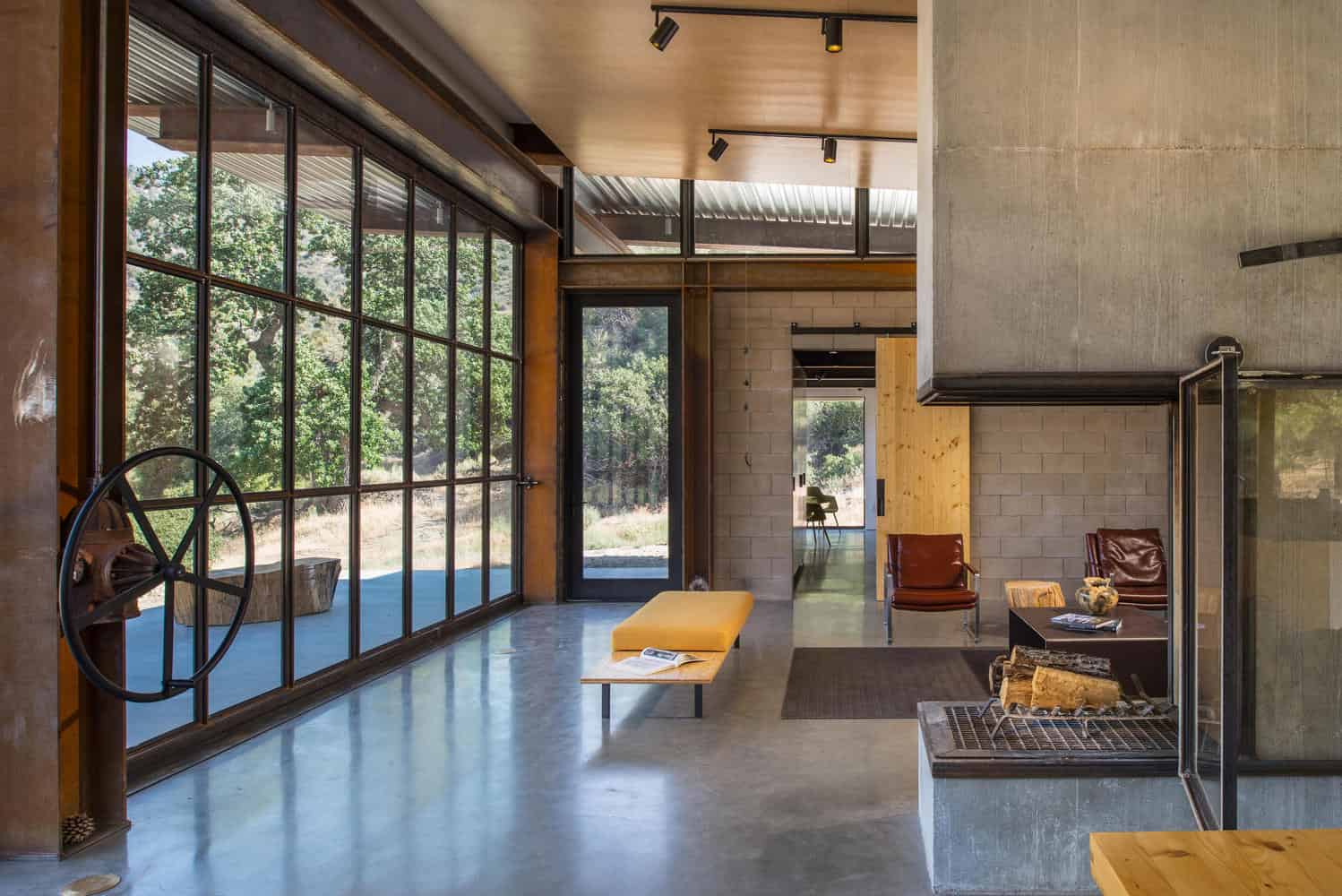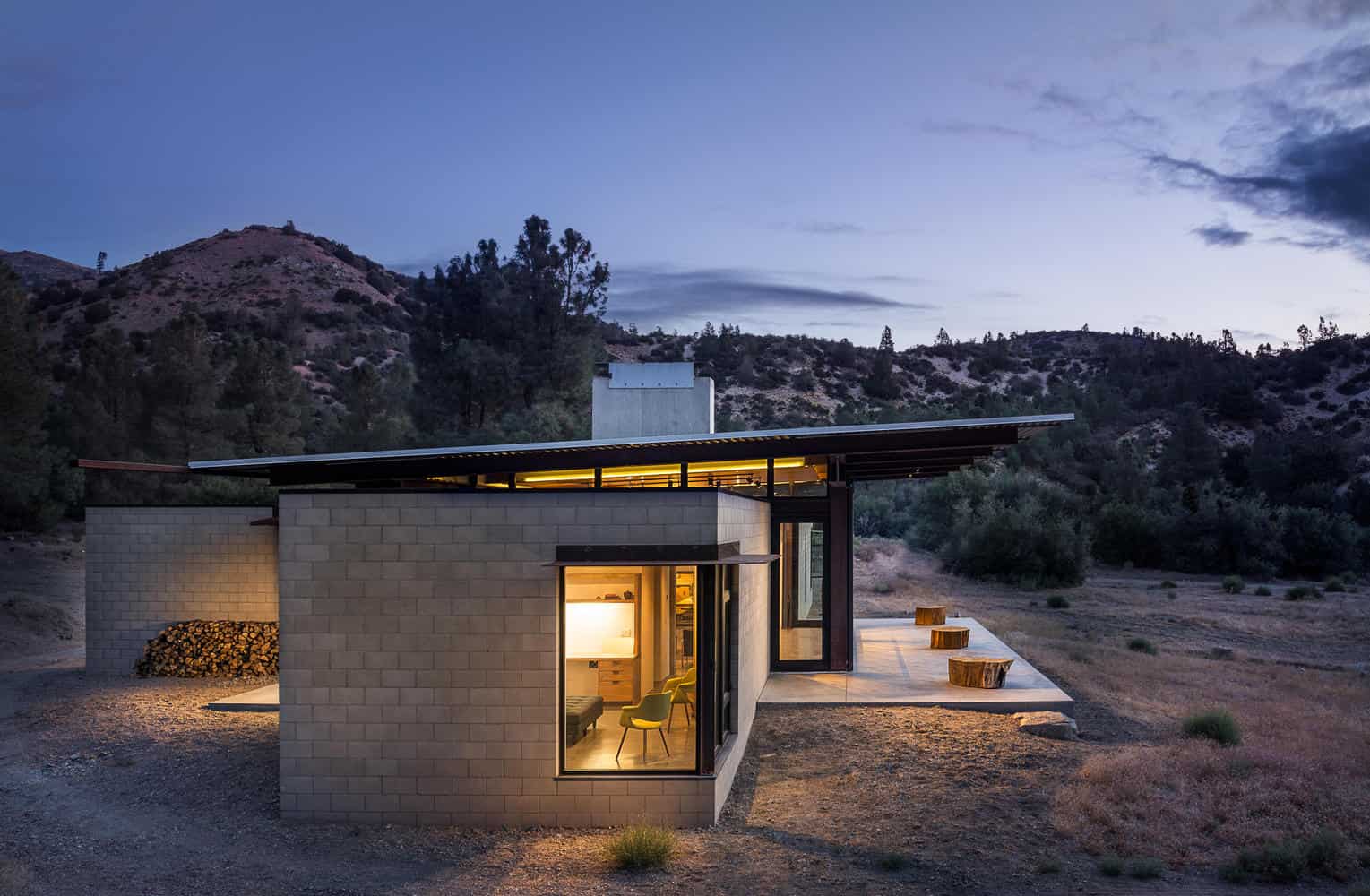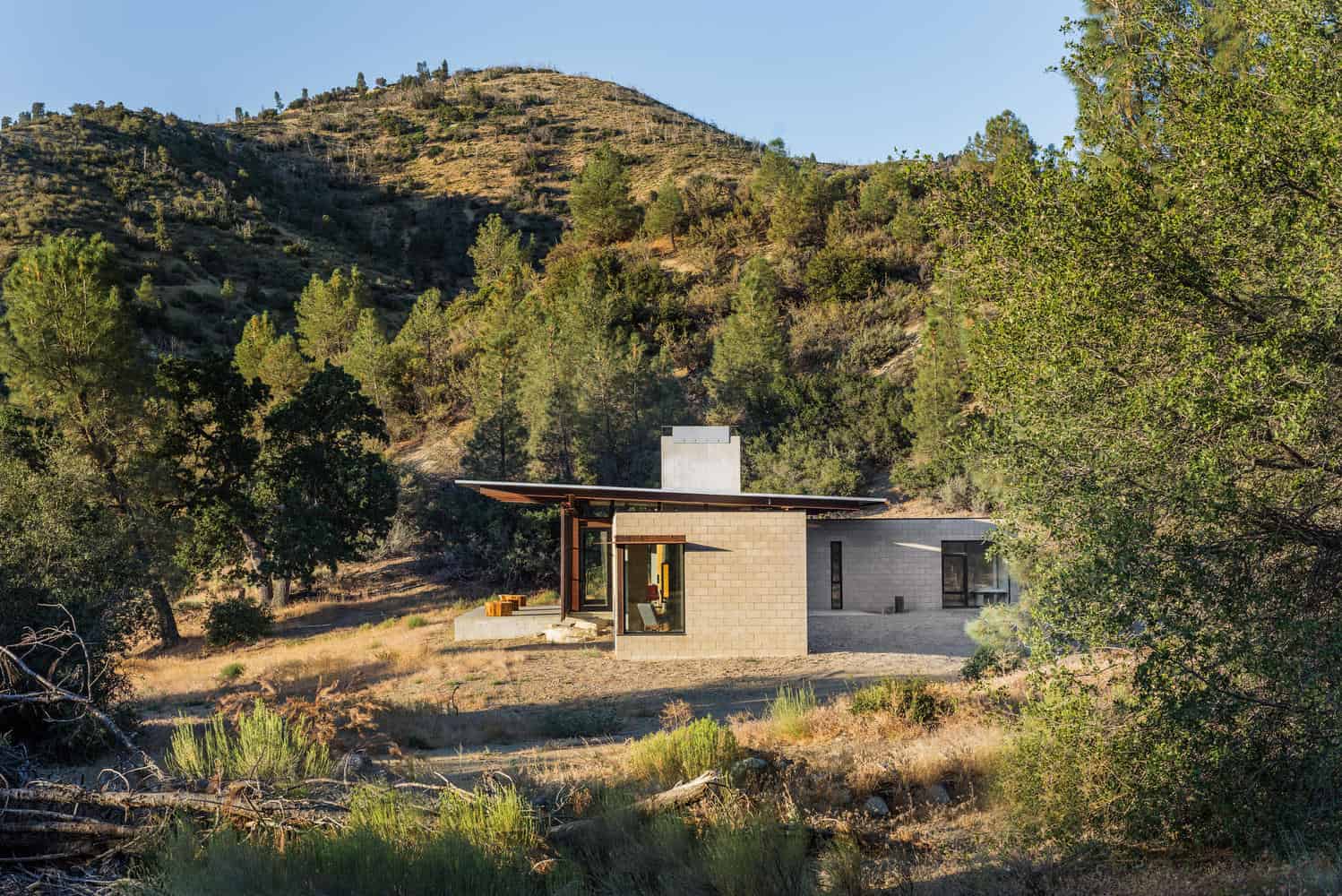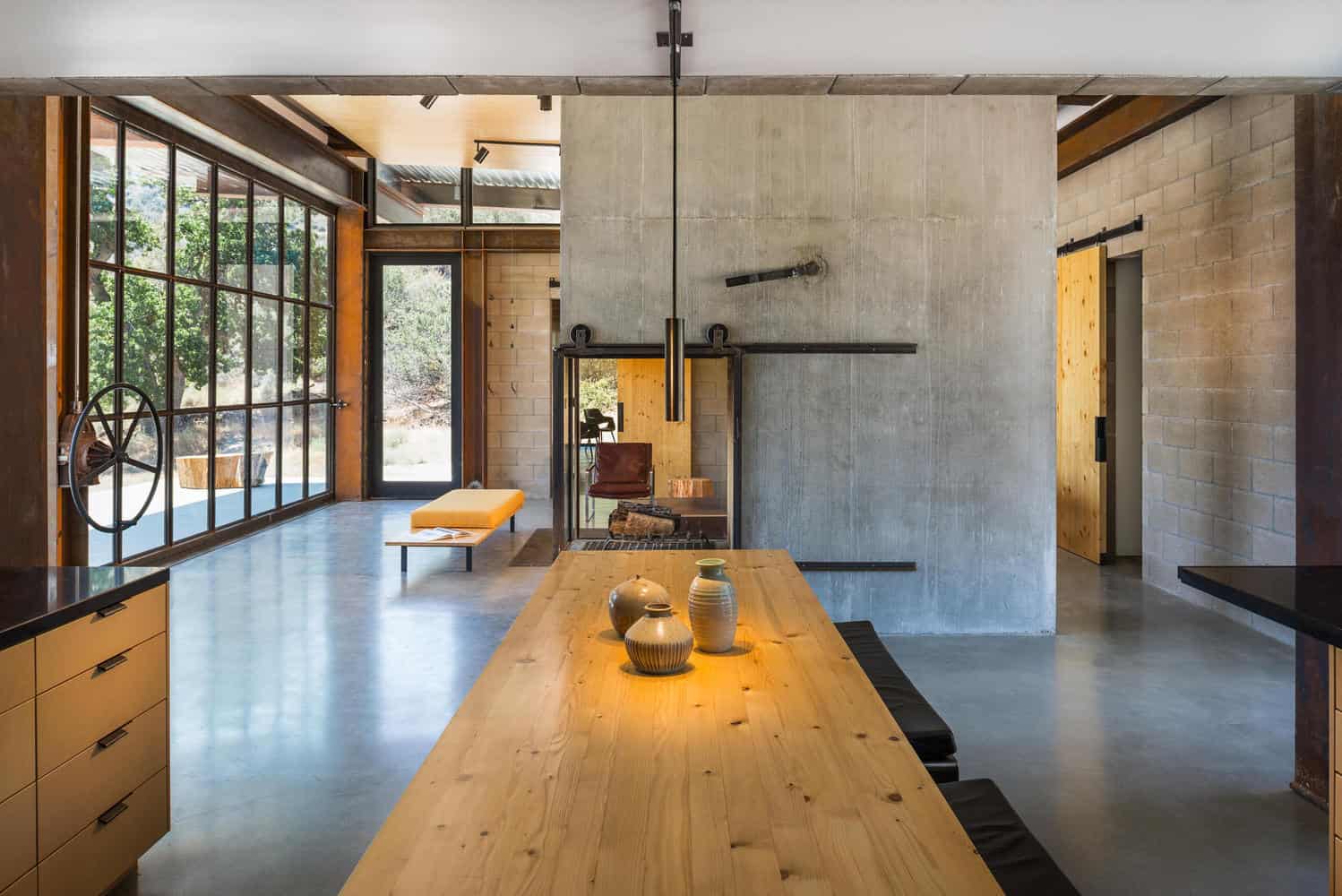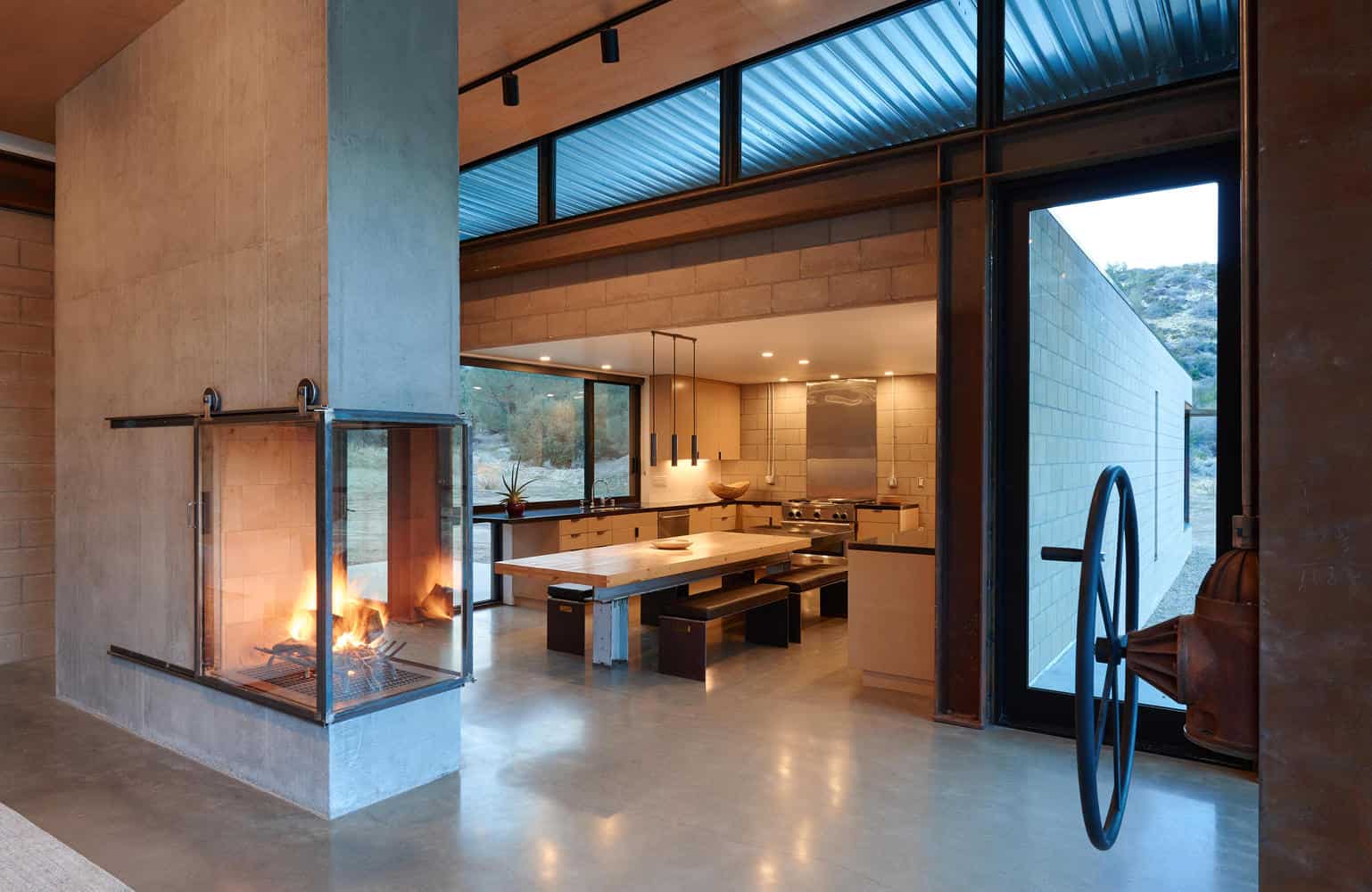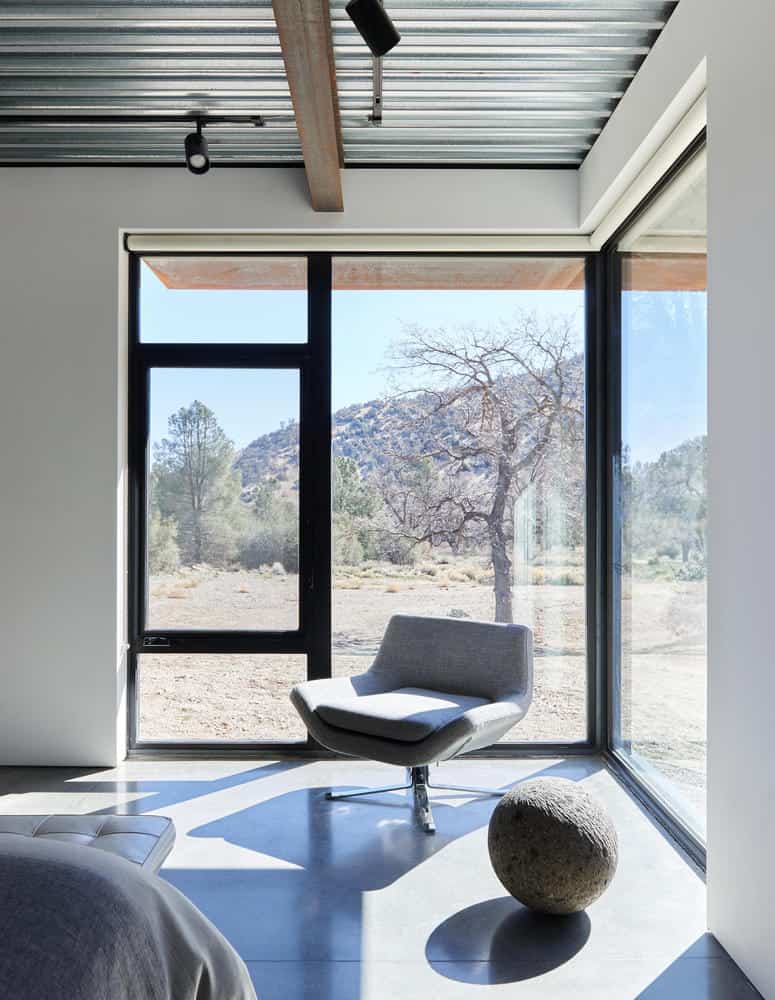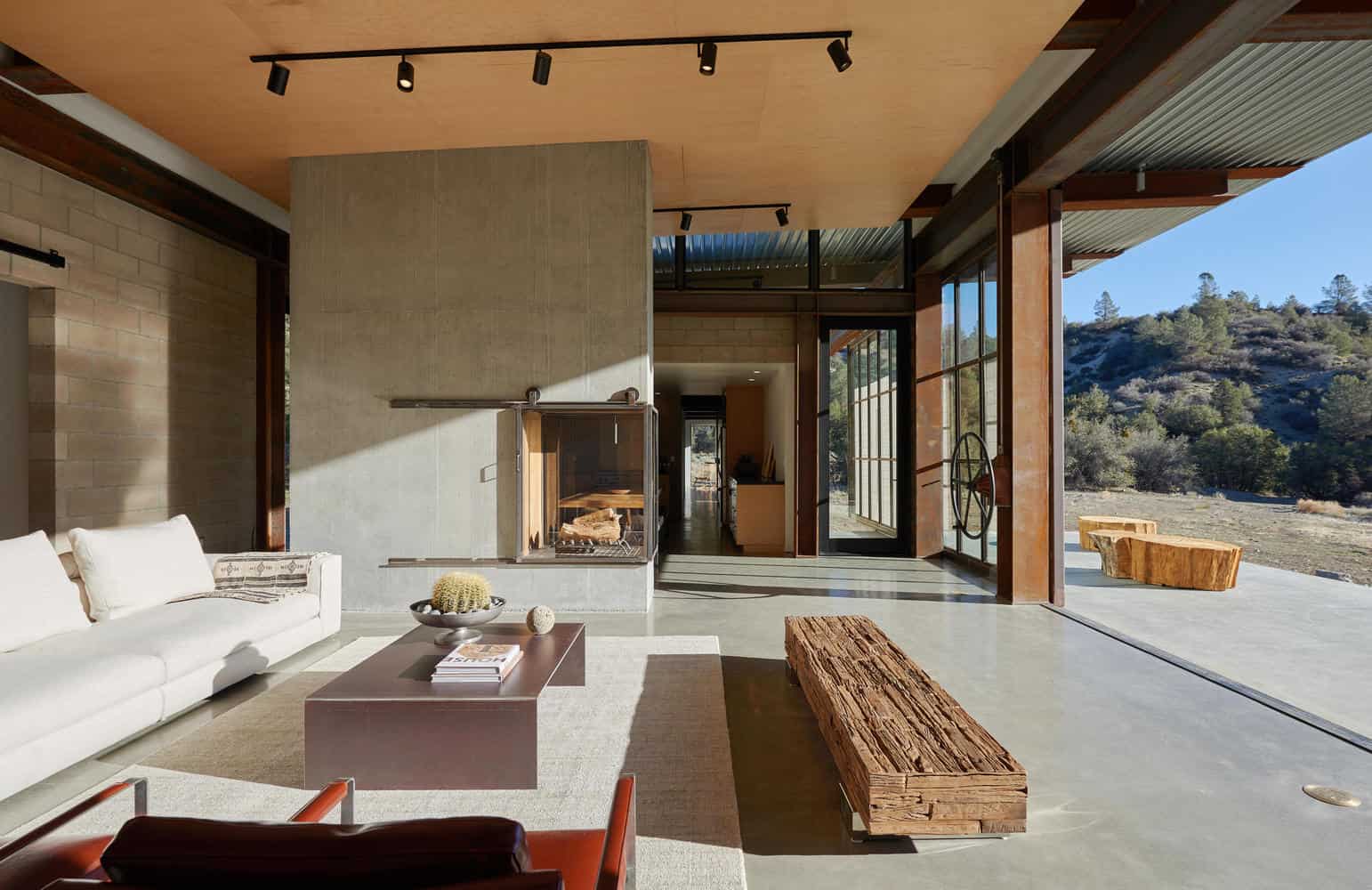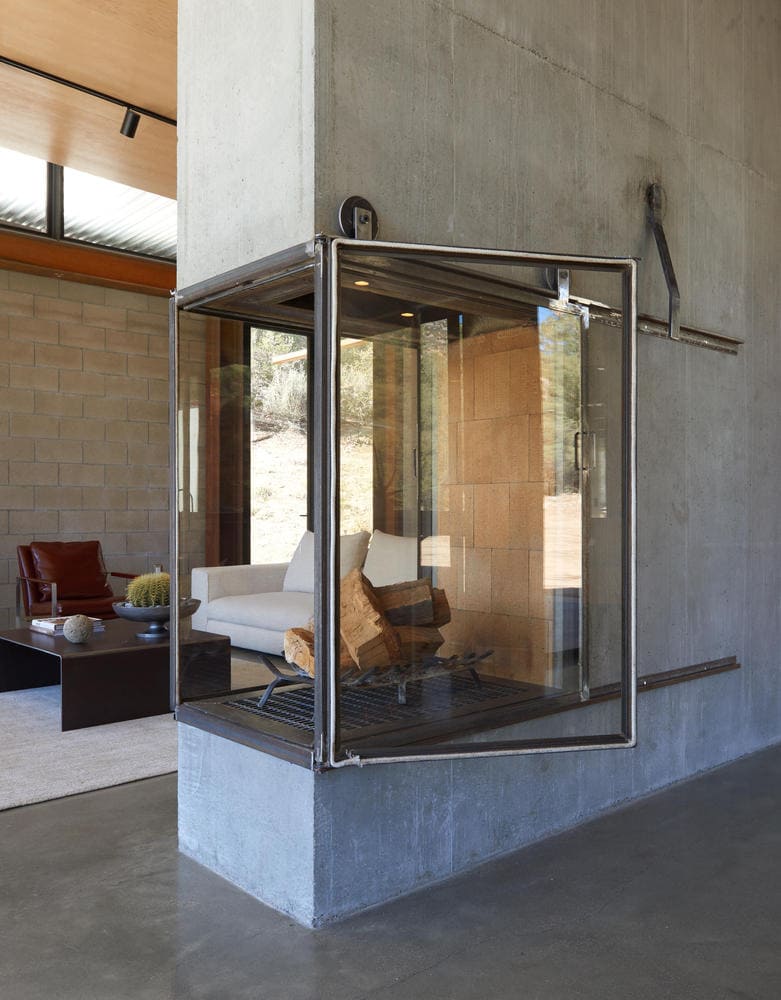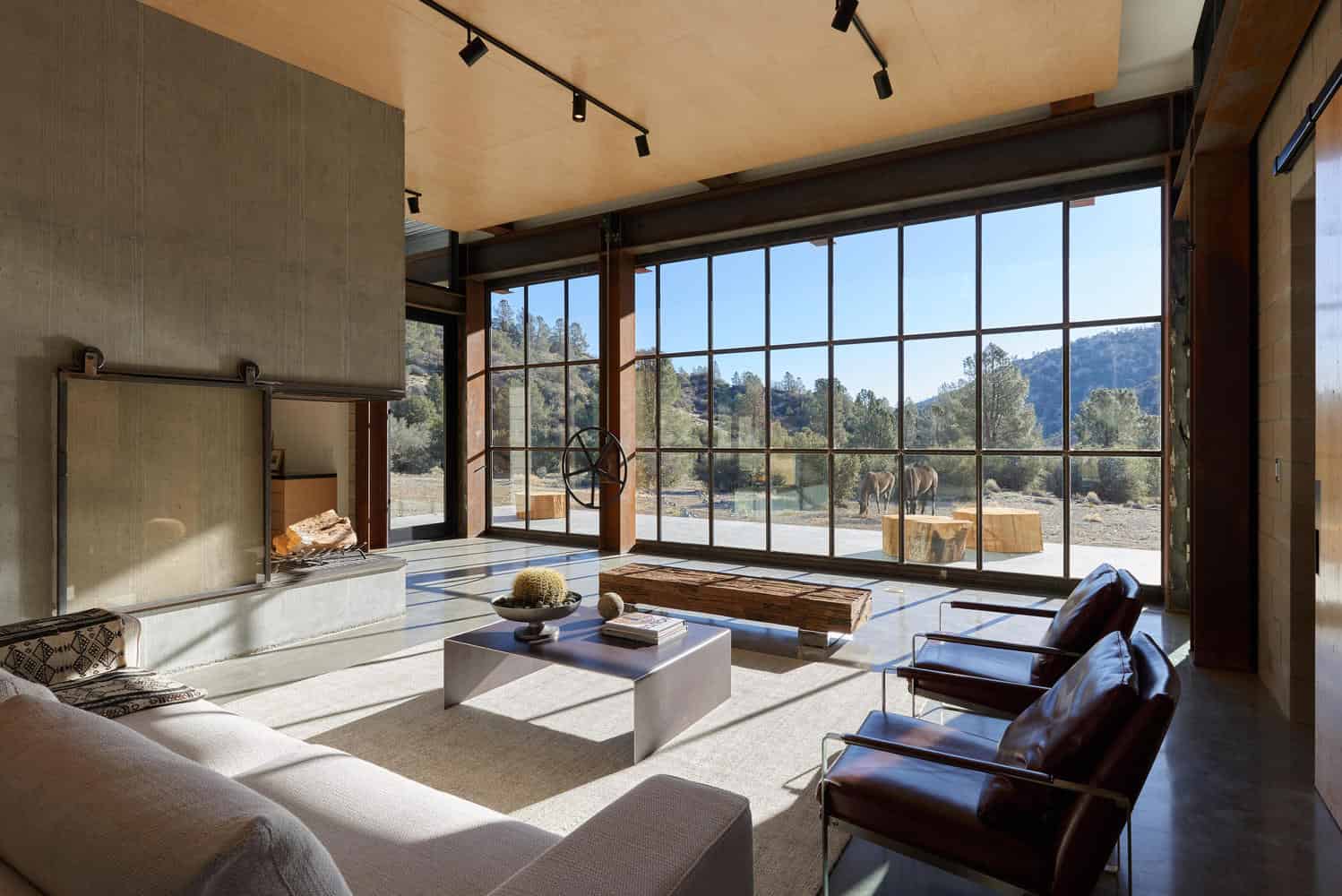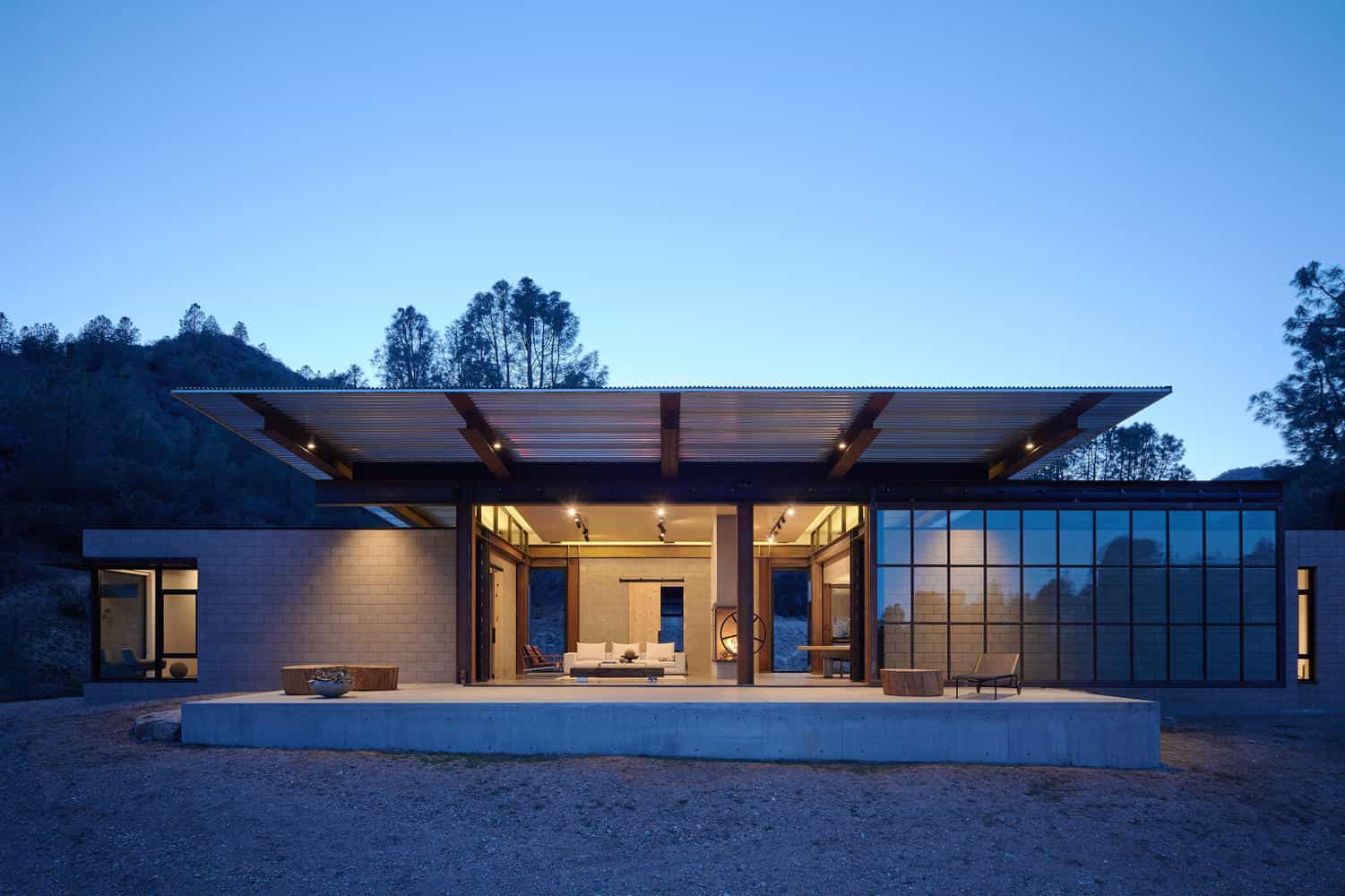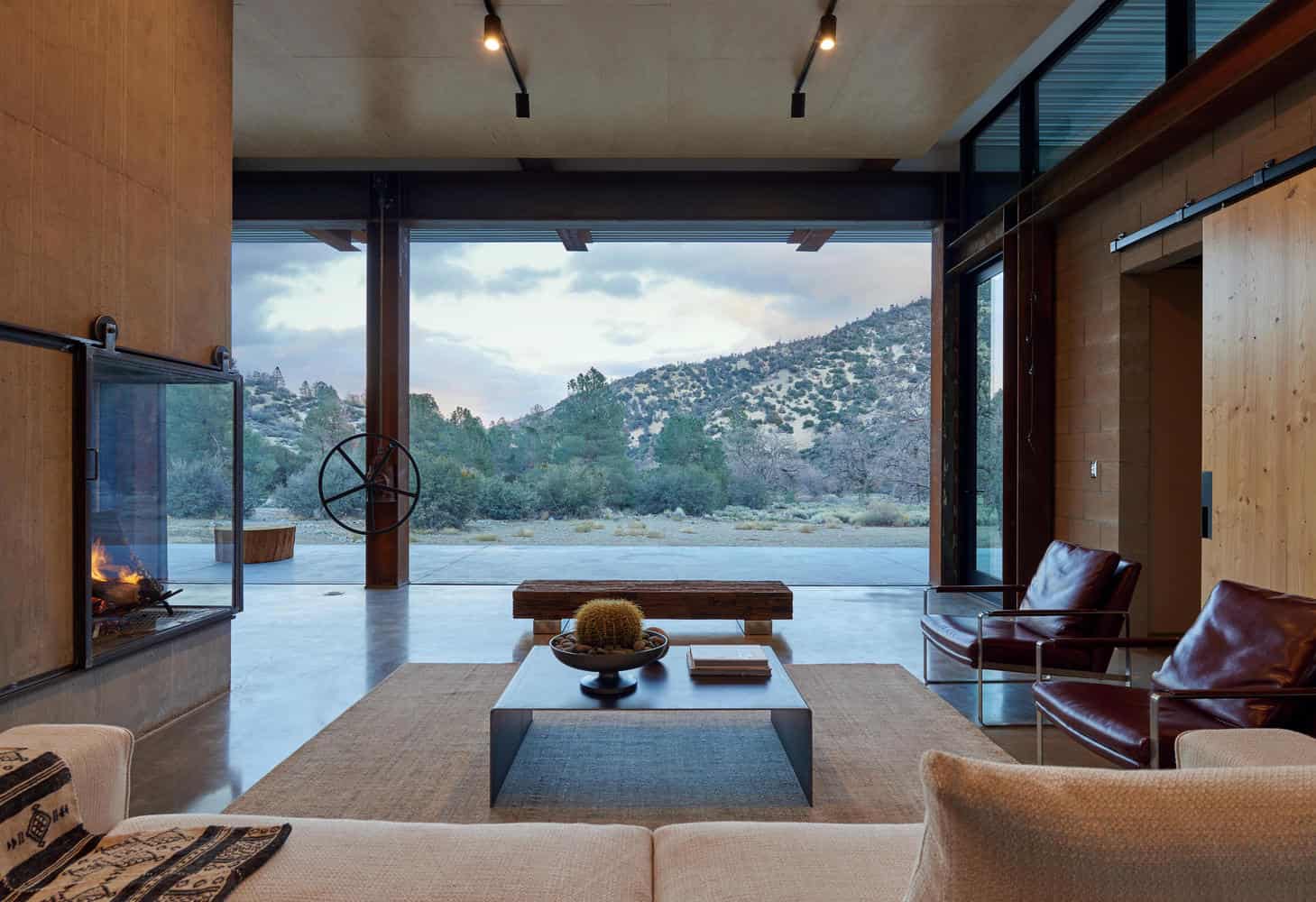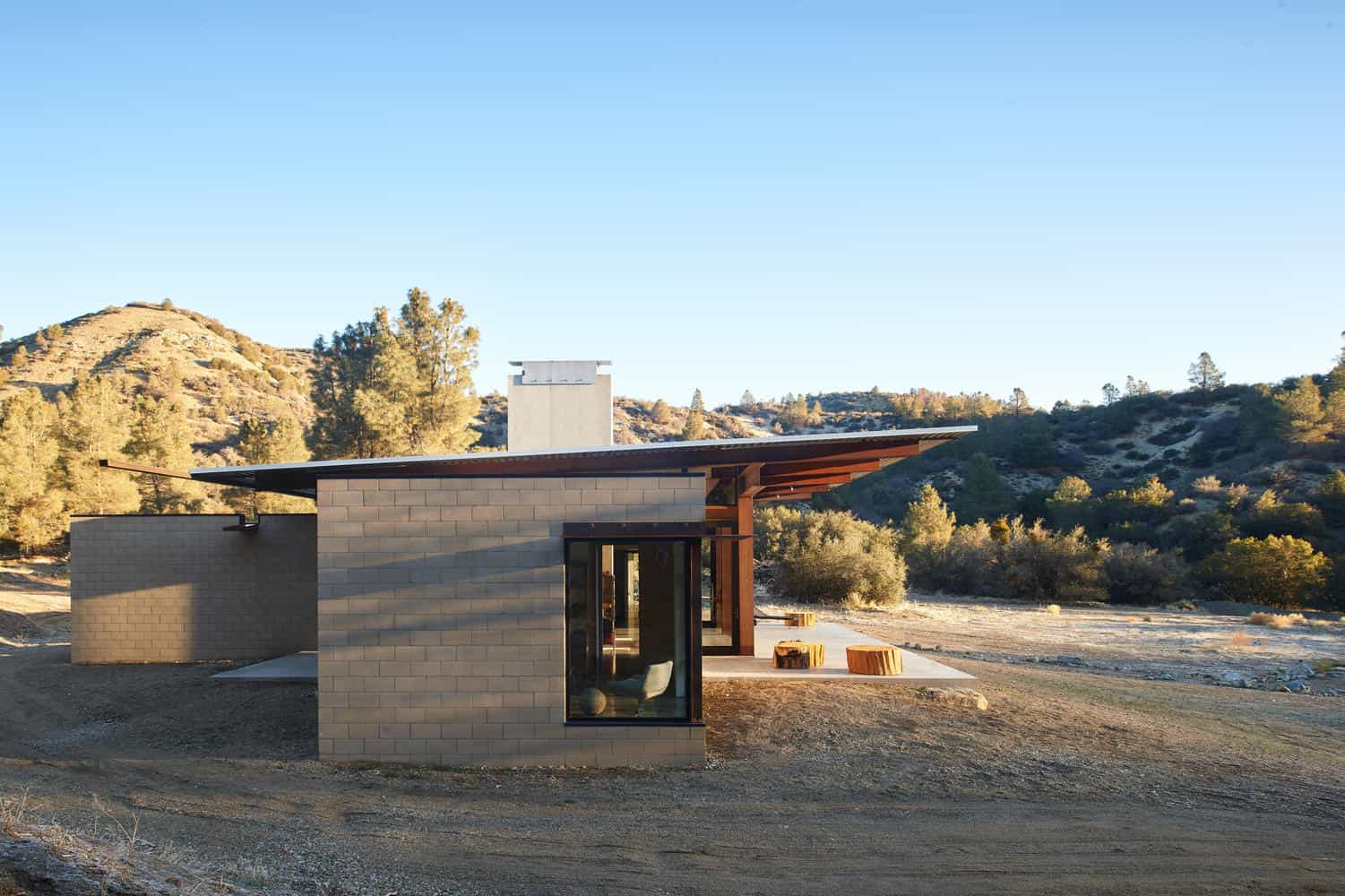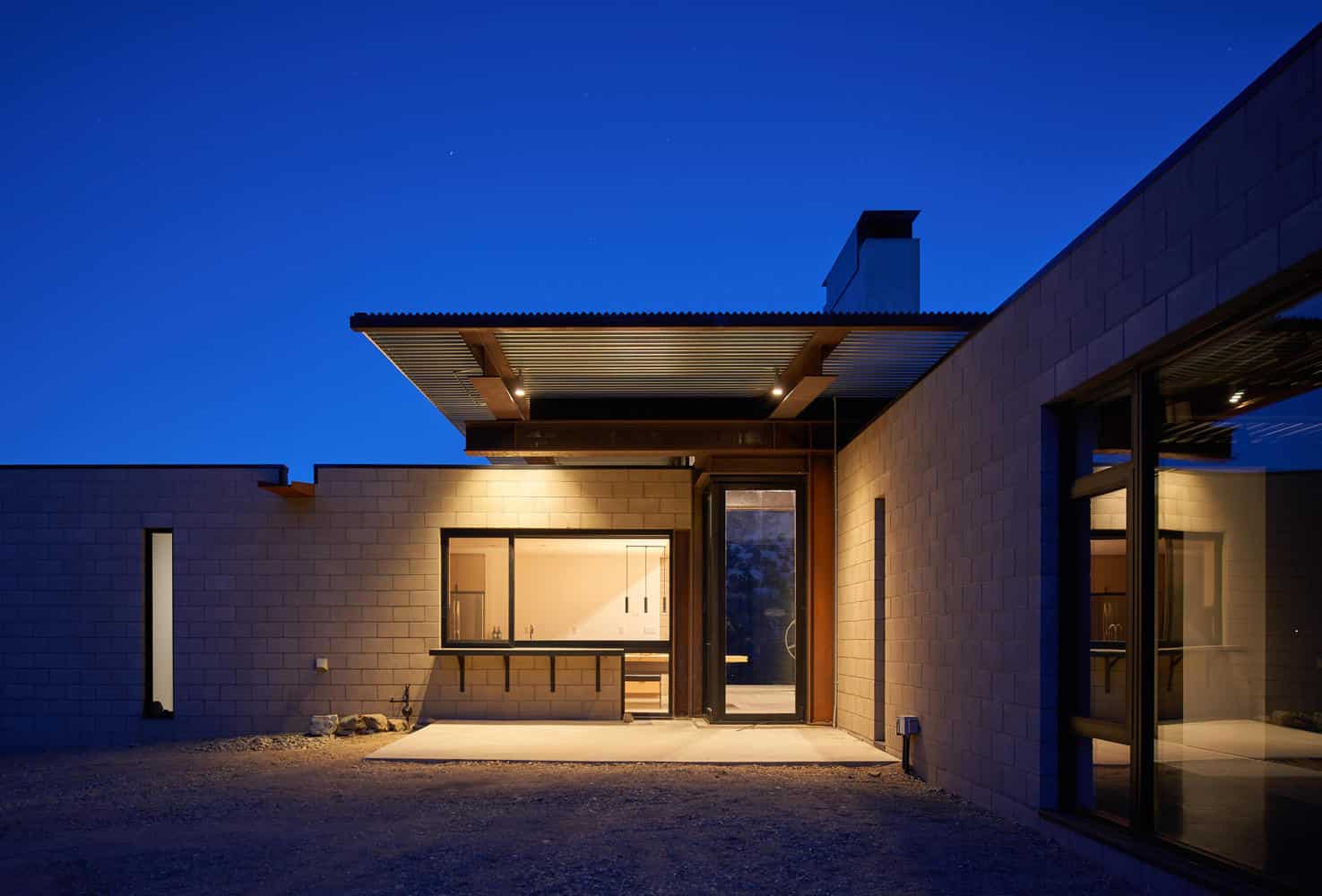Project: Sawmill Retreat
Architects: Olson Kundig Architects
Location: Tehachapi, California, USA
Area: 4,170 sq ft
Photographs by: Courtesy of Olson Kundig Architects
Sawmill Retreat by Olson Kundig Architects
The Sawmill Retreat is an off-the-grid residence located in Tehachapi, California. It was designed by Olson Kundig Architects, a studio that might sound familiar to you from a recent showcase that we made on their Rimrock Residence project. However, the area of the Tehachapi Mountains in which the home was to be built has an extreme environment susceptible to forest fires. This played a major role in the material choice. The rest of the design follows a simple scheme, including a central social areas and plenty of separate private areas for everyone.
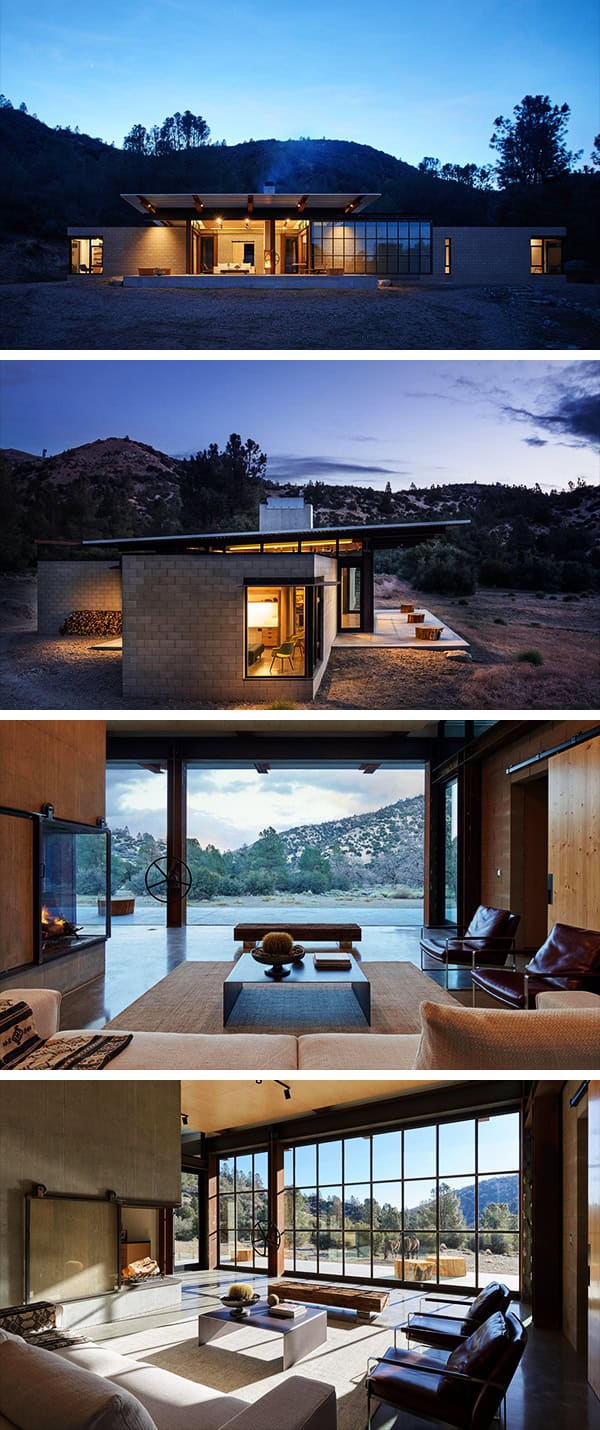
Set in the harsh high desert of California, Sawmill is a family retreat embedded into the tough, scrubby landscape. Sawmill harnesses the challenges and opportunities of its remote site, emphasizing sustainable strategies and reclaimed materials. Demonstrating that high design can also be high performance, Sawmill is a net-zero home that operates completely off the grid.
The client brief called for a self-sufficient home that maximized connection between architecture and nature, and between family members inside. Riffing on the tradition of tents around a campfire, the house is comprised of three wings connected by the central hearth in the living area. Here, a 12-by-26-foot window wall retracts with the turn of a wheel, transforming the outdoor patio into the fourth “tent” around the fire.
Tough as nails, Sawmill is made from durable materials that can withstand the harsh climate, where fires are a major hazard in summer and winters are extremely cold. The design approach was driven by a scavenger mentality, seeking always to do more with less, including using salvaged and recycled materials whenever possible.
Carefully sited to minimize disturbance to its remote environment, Sawmill acknowledges that while the desert is harsh, it is also fragile. Historically, the valley had been used for mining, ranching and logging – hence the name “Sawmill.” Recognizing this past exploitation of the site, the homeowners wanted their house to give back to the land, rather than take from it. Sawmill stands as a testament to high design as an environmental ethic – a building that connects people to place.
